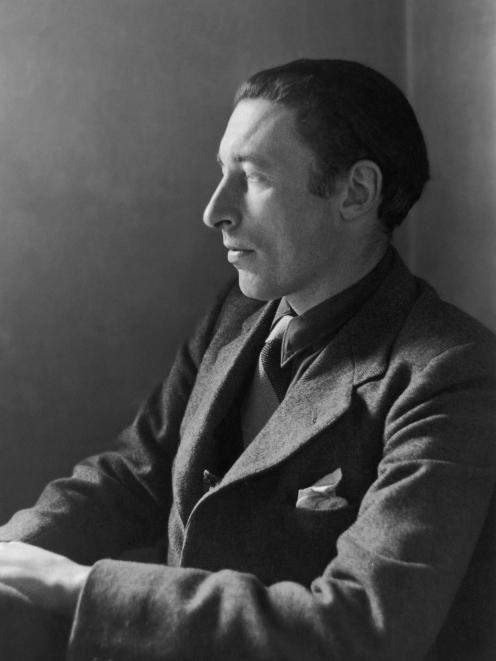At dusk I set off for a walk.

Two girls, aged perhaps 9 or 10, are standing near the kerb of Canterbury St. (The streets of central Lyttelton all bear the names of British cathedral towns. The early settlers of the Canterbury Association saw themselves as pilgrims, and they would not be happy with present-day godless Lyttelton. But the street names endure.)
The girls seem about to cross the road, but they do not do so, even though there isn’t a car in sight.
One girl is standing about a metre in front of the other. She has a scooter. (When I was a kid I ached for a scooter, like the one my older brother had. In due course I inherited his, but it was a poisoned gift because he then got a bike.)

The second girl has a table. It’s a small thing on casters with legs of polished chrome, like a hospital medicine trolley or similar.
Why she has it, I cannot begin to guess. (Louis MacNeice wrote of ‘‘the drunkenness of things being various’’. We are a species that seeks patterns, but, in truth, there is only what happens to happen, oddments, girls with tables.)
(Louis MacNeice is the only person I know of who did what grandmothers are always warning about: he caught his death of cold. He went on a trip for work, got soaked in a downpour, stayed in his wet clothes for the train ride home, caught a chill and died. Although his raging alcoholism may have not have helped.)
All is not well between the girls. The one with the table is looking at the one with the scooter. The one with the scooter is looking at the ground.
They are not speaking but there’s a nimbus of thunder about them. (How quick we are to take such things in, to read physical cues. Words are all very well, but our main ways of communication remain wordless, just as they do for, say, dogs that dance around each other at the park.)
I slow my pace. I am in plain view of the girls and perhaps 10m away, but they do not once look up.
It is partly the self-absorption of the young, but also the invisibility of age. (If I think back I can just about remember the sheer irrelevance of anyone over, say, 30. They simply didn’t understand, had never been young. And I recall an old man at a cricket club I played for. Eddie Butcher was his name and he was built like a piece of string, with a long long neck. When he’d had a few rums at the cricket club bar he loved to regale us youngsters with an account of his sexual adventures when young, one of which took place on a fur rug in front of ‘‘a roaring fire’’. Eddie had that old posh speech defect which substitutes w’s for r’s, so the pleasure was in listening to him say woawing fire. The sex we didn’t believe for one minute. He was so old.)
For no evident reason the girl with the scooter steps off the kerb and sets off across Canterbury St. She is pushing the scooter, not scooting it.
The girl with the table says, ‘‘wait. Come back. You’ve got to help me’’.
The girl with the scooter stops in the middle of the road. There is still no traffic about.
She does not turn around.
‘‘You didn’t help me,’’ she says.
‘‘But that’s different,’’ the girl with the table says.
‘‘No it isn’t.’’
The girl with the table lifts it with some difficulty off the kerb and over the old deep stone gutter (possibly laid by the Canterbury Association all those years ago, in which case it has outlasted their churches. Drainage trumps god).
She half pushes, half pulls the table on its casters until she has nearly caught up with the girl with the scooter.
But the girl with the scooter starts up again without looking at her and stays a metre or so ahead as they cross the road, together and yet not together, in silence.
I walk on. World is ‘‘more of it than we think’’, MacNeice (who caught his death of cold) said.
• Joe Bennett is a Lyttelton writer.











